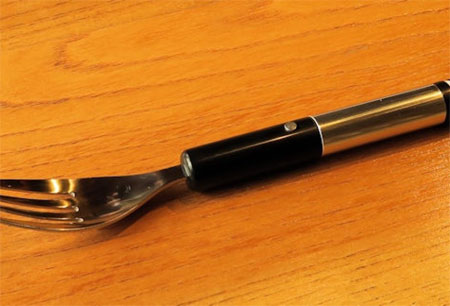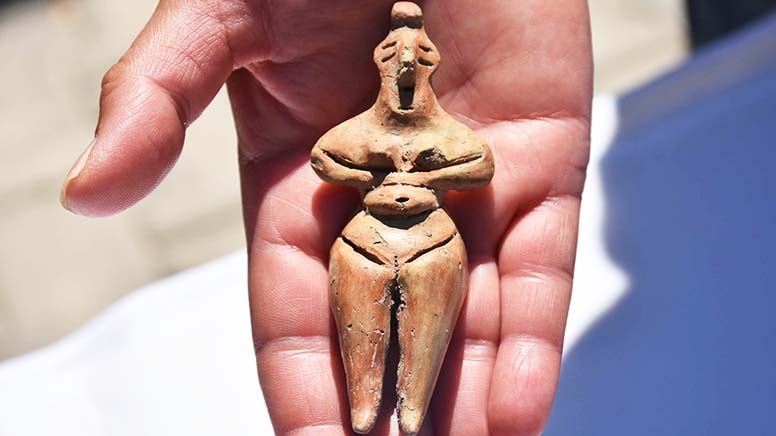
- A-
- A
- A+
Electric fork adds taste to salt-free meal
A prototype of the “electric flavoring fork,” which generates a salty taste by stimulating the tongue with electricity, has been developed in Japan.
The fork was developed based on the “electric flavoring” technology being researched by Hiromi Nakamura at Rekimoto Lab, Interfaculty Initiative in Information Studies, the University of Tokyo. It is an application of an “electric test for taste” used to judge whether a taste cell of a tongue is dead or alive. And it exploits the fact that a tongue feels salty or sour when electricity is applied to it.
The fork is targeted mainly at those who need low-salt or salt-free diet such as hypertensive patients. This time, the prototype was prepared for “No Salt Restaurant,” a project to offer a salt-free full-course meal.
The handle of the fork incorporates a rechargeable battery and electric circuit. When the user inserts the head of the fork into the mouth with food while pressing a button on the handle, a certain level of electric current is applied to the tongue. The degree of saltiness differs depending on eating habits, age, etc. This time, three current levels were available. The prototype costed ¥2,000 (approx US$17.7) in addition to the cost of a fork.
The electric flavoring fork generates not only a salty taste but sour and metallic tastes. This time, with help from cooking experts, it was found that spices such as pepper and garlic make it easier to feel salty.
Similar News
Links



 Elm TV
Elm TV
 Photo
Photo
 Video
Video





